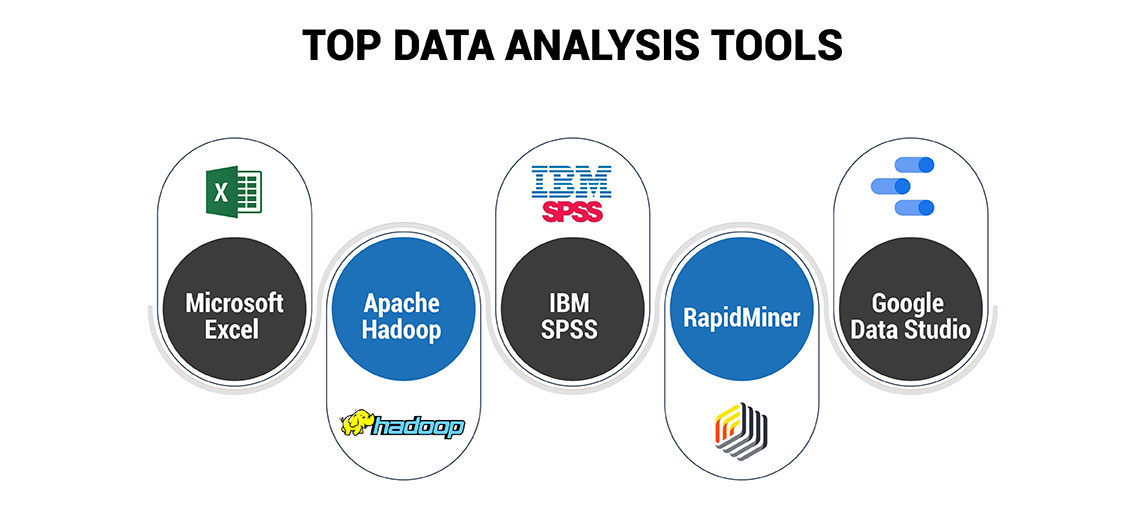Optimize Growth: Exactly How Analytics Drive Better Strategies
By utilizing information understandings, companies can refine their operational strategies, anticipate market adjustments, and improve client engagement. The difficulty lies not only in gathering data yet in effectively interpreting it to drive tangible outcomes.
Recognizing Data Analytics
Data analytics is an organized computational analysis of information that makes it possible for organizations to uncover meaningful patterns and insights. This process encompasses a range of strategies, consisting of statistical evaluation, predictive modeling, and data mining, which collectively intend to transform raw information into actionable info - Analytics. By using these methods, companies can make informed choices that are rooted in empirical proof as opposed to intuition alone
The structure of data analytics depends on its capacity to manage huge amounts of information from diverse resources. This includes organized data, such as databases, and unstructured data, including social media sites communications and client feedback. Via making use of specialized software program and devices, experts can remove and process this information efficiently, recognizing fads and connections that may not be promptly noticeable.
Recognizing information analytics likewise involves recognizing the significance of information quality and integrity. Precise and trusted data is essential for purposeful analysis; thus, organizations need to execute robust data administration techniques. Furthermore, the repetitive nature of analytics permits continual improvement and improvement of methods, ensuring that organizations stay agile in the face of transforming market dynamics and customer habits.
Trick Benefits of Analytics

Among the vital benefits of analytics is its ability to provide workable understandings. Organizations can promptly evaluate huge quantities of information, revealing patterns that may not be quickly apparent. This assists in expecting market changes and adapting strategies accordingly. Additionally, analytics fosters a culture of evidence-based decision-making, minimizing dependence on intuition and uncertainty.
One more considerable advantage is improved consumer understanding. Analytics devices enable companies to segment their audience, track consumer actions, and customize advertising and marketing initiatives. This targeted approach not just boosts client interaction yet also drives higher conversion prices.

Implementing Analytics Techniques
To totally realize the benefits of analytics, companies need to adopt structured methods for application. This begins with clearly defining goals that straighten with broader organization goals. By establishing certain, quantifiable results, organizations can concentrate their analytics initiatives on areas that produce the highest return on financial investment.
Following, organizations need to focus on data administration to ensure the integrity and protection of the information being examined. This includes establishing procedures for information collection, storage space, and accessibility while adhering to relevant regulations. Guaranteeing premium data is important for producing purposeful understandings.
Furthermore, promoting a culture of data-driven decision-making is essential. This calls for training workers to translate analytics searchings for and encouraging partnership throughout departments. When groups understand the value of analytics, they are most likely to incorporate insights into their everyday procedures.
Lastly, organizations must routinely assess and refine their analytics strategies. The landscape of data and modern technology is link consistently evolving, and remaining adaptable will certainly allow organizations to utilize brand-new devices and methods successfully. By carrying out these structured approaches, organizations can optimize the influence of their analytics initiatives and drive sustainable development.
Devices for Effective Analysis
Efficient evaluation counts on a variety of devices that promote the extraction of understandings from data - Analytics. These devices can vary from straightforward spreadsheet applications to sophisticated maker discovering platforms, each serving a distinct objective in the analytical procedure
Information visualization software application, such as Tableau and Power BI, plays a crucial function in transforming complex datasets right into reasonable graphical representations. These tools enable experts to identify trends and patterns rapidly, allowing for more educated decision-making.
Analytical evaluation software program, like R and SAS, uses innovative capacities for carrying out thorough evaluations, including regression, hypothesis testing, and predictive modeling - Analytics. These functions empower companies to draw purposeful final thoughts from their data, recognizing prospective opportunities and threats
Additionally, data source monitoring systems such as SQL and NoSQL databases supply the required framework for saving and inquiring big quantities of information efficiently. They make certain that information is arranged and accessible for evaluation.
Lastly, organization knowledge systems incorporate numerous data resources, offering an extensive view of business performance. By utilizing these tools successfully, services can enhance their logical abilities, allowing them to establish methods that make the most of development and improve general efficiency.
Study of Success
Successful companies commonly take advantage of information analytics to drive impactful strategies, as evidenced by numerous notable case studies. One popular instance is Netflix, which uses sophisticated algorithms to analyze customer preferences and actions. By employing these understandings, Netflix has actually successfully customized its material recommendations, resulting in increased customer involvement and client retention. Their data-driven approach has actually certainly added to their standing as a leading streaming solution.

Additionally, Starbucks utilizes data analytics to figure out optimum shop areas and fine-tune its product offerings. By taking a look at consumer demographics and purchasing patterns, Starbucks successfully identifies high-potential markets and tailors its food selection to local preferences, driving sales and client commitment.
These situation studies highlight that effective utilization of data analytics can result in tactical advantages, fostering advancement and development click to read within organizations throughout various markets.
Final Thought
In conclusion, the integration of analytics right into business methods considerably improves decision-making procedures and cultivates lasting development. The effective implementation of analytics devices additionally sustains dexterity and technology, making it possible for companies to navigate competitive landscapes with greater precision.
Information analytics is a systematic computational analysis of data that makes it possible for companies to discover significant patterns and insights.Comprehending data analytics likewise entails acknowledging the significance of information top quality and integrity. Trusted and precise information is important for meaningful analysis; thus, companies must carry out durable information governance methods.Following, companies must focus on data administration to ensure the honesty and safety and security of the information being assessed.Effective organizations frequently leverage official website information analytics to drive impactful strategies, as confirmed by several noteworthy instance studies.